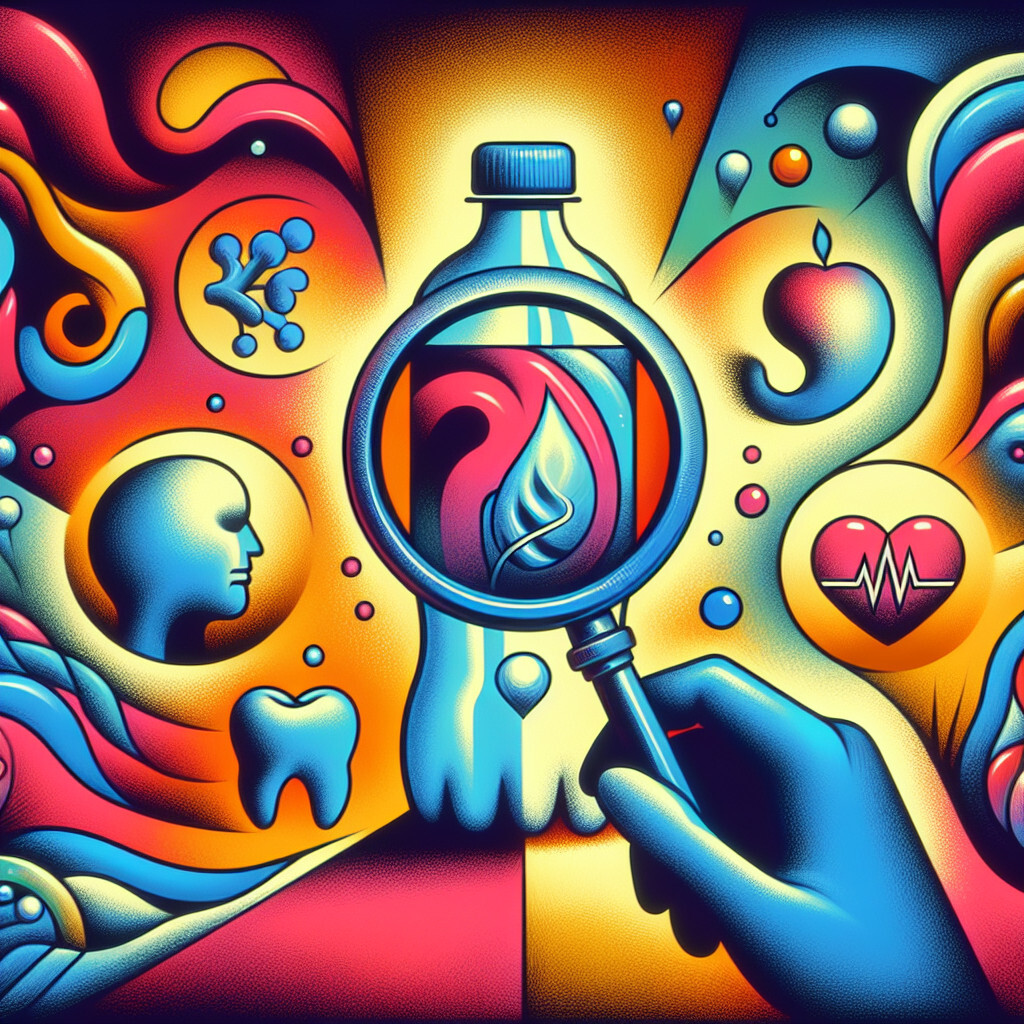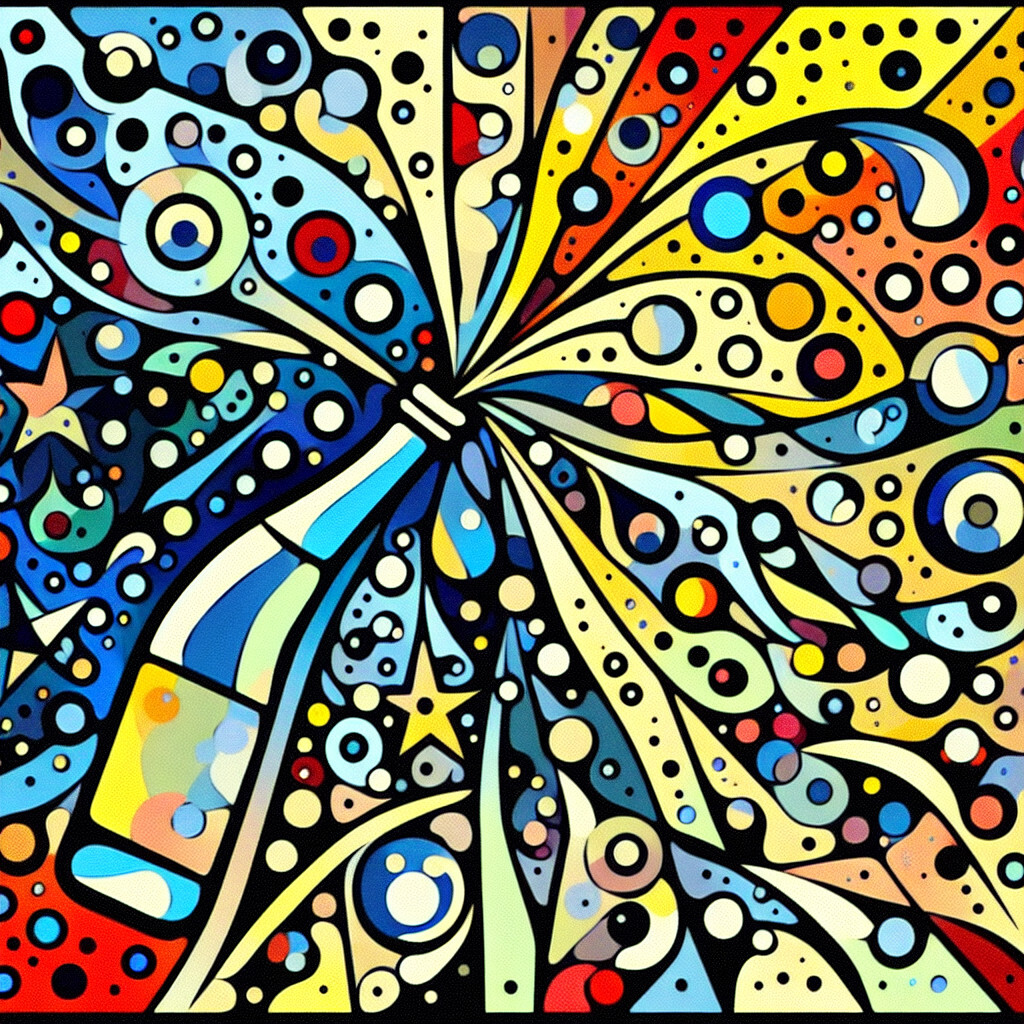-
Table of Contents
“Sparkling Water: A Fizzy Delight with No Harmful Bite!”
Introduction

Sparkling water, a popular beverage choice for many, is often consumed as a healthier alternative to sugary sodas and drinks. However, there are concerns and debates about its potential negative impacts on health. This includes issues related to dental health, bone density, and digestion. While it is generally considered safe for consumption, some studies suggest that the carbonation in sparkling water can lead to tooth decay, lower bone density, and digestive issues. This introduction aims to explore whether sparkling water is indeed bad for you, delving into various research findings and expert opinions.
The Hidden Dangers of Sparkling Water Consumption
Sparkling water, a popular beverage choice for many, is often seen as a healthier alternative to sugary sodas and artificially flavored drinks. It offers the same refreshing fizziness without the high sugar content and artificial ingredients. However, there are hidden dangers associated with the consumption of sparkling water that many consumers are unaware of.
Firstly, it’s important to understand what sparkling water is. It’s simply water that has been infused with carbon dioxide under pressure. This process gives the water its characteristic bubbles and fizz. While this might seem harmless, the carbonation in sparkling water can potentially lead to a number of health issues.
One of the primary concerns is its effect on dental health. The carbonation process creates carbonic acid, a weak acid that can erode tooth enamel over time. This is particularly concerning for frequent consumers of sparkling water. While the acidity level in sparkling water is less than in sodas, it’s still higher than in regular water. Therefore, excessive consumption of sparkling water can potentially lead to tooth decay and other dental problems.
Another potential issue is its impact on bone health. Some studies suggest that carbonated beverages, in general, can lead to lower bone density. However, it’s important to note that these studies often do not differentiate between sparkling water and other carbonated drinks like sodas, which are high in phosphates. Phosphates can interfere with the body’s ability to absorb calcium, leading to weaker bones. While sparkling water is typically low in phosphates, those who consume large amounts may still be at risk.
Additionally, sparkling water can also lead to digestive issues. The carbon dioxide that gives the water its fizz can cause gas and bloating in some individuals. This is especially true for those who drink it quickly or in large amounts. Furthermore, some people may experience heartburn or acid reflux after consuming sparkling water due to the carbonic acid.
Despite these potential risks, it’s important to remember that moderation is key. Drinking sparkling water occasionally or in moderate amounts is unlikely to cause significant health problems for most individuals. However, those with sensitive stomachs or existing dental issues may want to limit their consumption.
Moreover, not all sparkling waters are created equal. Some brands add sodium, artificial sweeteners, or other additives to their products. These can pose additional health risks, especially for those with high blood pressure or diabetes. Therefore, it’s crucial to read labels carefully and choose products with minimal added ingredients.
In conclusion, while sparkling water is a healthier alternative to sugary sodas and artificially flavored drinks, it’s not without its potential drawbacks. The carbonation can lead to dental issues, potential bone health concerns, and digestive discomfort. However, these risks are generally associated with excessive consumption. Therefore, as with most things in life, moderation is key. It’s also important to choose sparkling water products that are free from unnecessary additives. By doing so, you can enjoy the refreshing fizz of sparkling water without compromising your health.
Debunking Myths: Is Sparkling Water Really Bad for Your Health?
There has been a significant rise in the popularity of sparkling water in recent years, with many people opting for this fizzy alternative to still water. However, with this surge in popularity, there has also been an increase in concerns and misconceptions about the potential health risks associated with consuming sparkling water. This article aims to debunk some of these myths and provide a clear understanding of whether sparkling water is indeed bad for your health.
One of the most common misconceptions about sparkling water is that it can lead to weight gain. This belief stems from the association of carbonated drinks with high sugar content and obesity. However, it is crucial to differentiate between sparkling water and sugary fizzy drinks. Sparkling water, particularly the unsweetened variety, does not contain any sugars or artificial sweeteners, making it a calorie-free beverage. Therefore, contrary to popular belief, sparkling water does not contribute to weight gain and can be a part of a healthy diet.
Another myth that often circulates about sparkling water is that it can cause bone loss. This misconception is based on studies that have shown a link between carbonated cola drinks and decreased bone density. However, these studies have not found the same effect with non-cola carbonated drinks like sparkling water. The decreased bone density in these cases is likely due to the phosphoric acid present in cola drinks, which is not a component of sparkling water. Thus, there is no scientific evidence to suggest that sparkling water negatively impacts bone health.
A further concern that some people have about sparkling water is that it can lead to tooth decay. This belief is based on the fact that the carbonation process involves carbon dioxide, which turns into carbonic acid when in contact with water, potentially leading to enamel erosion. However, research has shown that the level of acidity in sparkling water is much lower than in other beverages known to cause tooth decay, such as soft drinks and fruit juices. Therefore, while sparkling water is slightly more acidic than still water, it is not acidic enough to harm your teeth if consumed in moderation.
Lastly, there is a belief that sparkling water can cause digestive issues, such as bloating and indigestion. While it is true that the carbonation in sparkling water can cause a feeling of fullness or slight bloating, this is typically short-lived and not harmful. In fact, some studies suggest that sparkling water may actually aid digestion by improving swallowing ability and reducing constipation.
In conclusion, while there are many myths surrounding the potential health risks of sparkling water, the majority of these are unfounded. Sparkling water is a calorie-free, sugar-free beverage that does not contribute to weight gain, bone loss, tooth decay, or serious digestive issues. As with any beverage, it should be consumed in moderation as part of a balanced diet. So, the next time you reach for a refreshing glass of sparkling water, you can do so without worrying about any adverse effects on your health.
The Impact of Sparkling Water on Dental Health
Sparkling water, also known as carbonated water, has gained significant popularity in recent years. Its refreshing taste and effervescence make it an appealing alternative to still water and sugary soft drinks. However, amidst its rising fame, concerns have been raised about the potential impact of sparkling water on dental health. This article aims to shed light on this topic, providing an informative and formal discussion on the effects of sparkling water on oral health.
The primary concern about sparkling water’s impact on dental health stems from its carbonation process. Carbonated water is created by dissolving carbon dioxide under pressure, which results in the formation of carbonic acid. This acid is what gives sparkling water its characteristic fizz and tangy taste. However, it is also this acidity that has raised eyebrows among dental health professionals. Acids are known to erode tooth enamel, the hard, protective outer layer of our teeth. When enamel is worn away, it can lead to tooth sensitivity, discoloration, and an increased risk of cavities and tooth decay.
However, it is crucial to note that the level of acidity in sparkling water is significantly lower than in other beverages known to cause dental erosion, such as soft drinks and fruit juices. A study published in the Journal of Oral Rehabilitation found that while sparkling water is slightly more acidic than still water, it is less acidic than many other popular beverages. Therefore, while the acidity of sparkling water is not entirely benign, it is less likely to cause significant harm to tooth enamel compared to other acidic drinks.
Moreover, it is worth mentioning that not all sparkling waters are created equal. Some flavored sparkling waters contain added sugars and citric acid, which can increase the drink’s overall acidity and potential to cause dental erosion. Therefore, when choosing a sparkling water, it is advisable to opt for unflavored varieties and to check the ingredient list for added sugars or acids.
Another factor to consider is the frequency and manner of consumption. Sipping on sparkling water throughout the day, especially outside of meal times, can prolong the exposure of your teeth to the drink’s acidity, potentially increasing the risk of enamel erosion. Using a straw can help to minimize direct contact with the teeth and reduce potential damage.
In conclusion, while sparkling water does contain some level of acidity that could potentially harm tooth enamel, its impact on dental health is likely to be minimal, especially when compared to other more acidic beverages. However, to maintain optimal dental health, it is advisable to consume sparkling water in moderation, opt for unflavored varieties without added sugars or acids, and consider using a straw. Regular dental check-ups and good oral hygiene practices, such as brushing and flossing, are also essential in preventing dental erosion and maintaining overall oral health. Therefore, while sparkling water is not entirely innocent in the realm of dental health, it is far from being the villain it is sometimes made out to be.
Understanding the Effects of Sparkling Water on Digestion
Sparkling water, also known as carbonated water, has gained significant popularity in recent years. Its refreshing taste and fizzy sensation have made it a preferred choice for many, especially those seeking a healthier alternative to sugary sodas. However, amidst its growing popularity, questions have arisen about its potential effects on health, particularly on digestion. This article aims to shed light on the impact of sparkling water on digestion, providing a comprehensive understanding of its potential benefits and drawbacks.
Sparkling water is essentially water into which carbon dioxide gas has been dissolved under pressure. This process, known as carbonation, gives the water its characteristic bubbles and fizz. While it may seem harmless, the carbonation process has been linked to certain digestive issues. One of the most common concerns is the potential for sparkling water to cause acid reflux or heartburn. The bubbles in sparkling water can cause a buildup of gas in the stomach, which can lead to discomfort and bloating. In some cases, this gas can rise up into the esophagus, causing heartburn or acid reflux.
However, it’s important to note that these effects are typically more pronounced in individuals who are already prone to such conditions. For those with a healthy digestive system, moderate consumption of sparkling water is unlikely to cause significant discomfort or harm. In fact, some studies suggest that sparkling water may actually have some benefits for digestion. For instance, it has been found to stimulate the nerves responsible for swallowing, which can be beneficial for individuals with dysphagia, a condition characterized by difficulty swallowing.
Moreover, the carbonation in sparkling water can also stimulate the production of stomach acid, which aids in digestion. This can be particularly beneficial for individuals with conditions like hypochlorhydria, characterized by low stomach acid levels. Additionally, some research suggests that sparkling water may help to improve feelings of fullness, which could potentially aid in weight management.
However, it’s crucial to remember that not all sparkling waters are created equal. Some brands add sodium, artificial sweeteners, or other additives to their products, which can negate any potential health benefits. Therefore, when choosing a sparkling water, it’s advisable to opt for those with no added sugars or artificial ingredients.
In conclusion, while sparkling water can cause gas and bloating in some individuals, it is generally safe for most people when consumed in moderation. It may even offer some digestive benefits, such as stimulating the production of stomach acid and improving feelings of fullness. However, it’s important to choose sparkling water that is free from added sugars and artificial ingredients to maximize its potential health benefits.
As with any dietary choice, it’s always best to listen to your body and consult with a healthcare professional if you have any concerns. If you find that sparkling water causes discomfort or exacerbates existing digestive issues, it may be best to limit your consumption or opt for still water instead. Ultimately, the key to a healthy diet lies in balance and moderation.
Q&A
1. Question: Can sparkling water cause tooth decay?
Answer: No, sparkling water is generally safe for your teeth as it is not as acidic as sodas or fruit juices. However, flavored sparkling water may contain added sugars and acids which can contribute to tooth decay.
2. Question: Does sparkling water lead to weight gain?
Answer: No, sparkling water does not lead to weight gain as it is typically calorie-free. However, some flavored sparkling waters can contain added sugars, which could contribute to weight gain if consumed in excess.
3. Question: Can sparkling water cause bone loss?
Answer: No, there is no scientific evidence to suggest that sparkling water causes bone loss. The belief that carbonated beverages lead to calcium loss in bones is primarily associated with caffeinated, sugary sodas, not with sparkling water.
4. Question: Is sparkling water dehydrating?
Answer: No, sparkling water is not dehydrating. It provides the same level of hydration as still water. However, the added carbonation can make you feel full faster, potentially leading to less overall water consumption.
Conclusion
In conclusion, sparkling water is not bad for you. It is a good alternative to sugary drinks and can help with hydration. However, it may cause issues for those with sensitive teeth or irritable bowel syndrome. It’s always important to consume in moderation.





